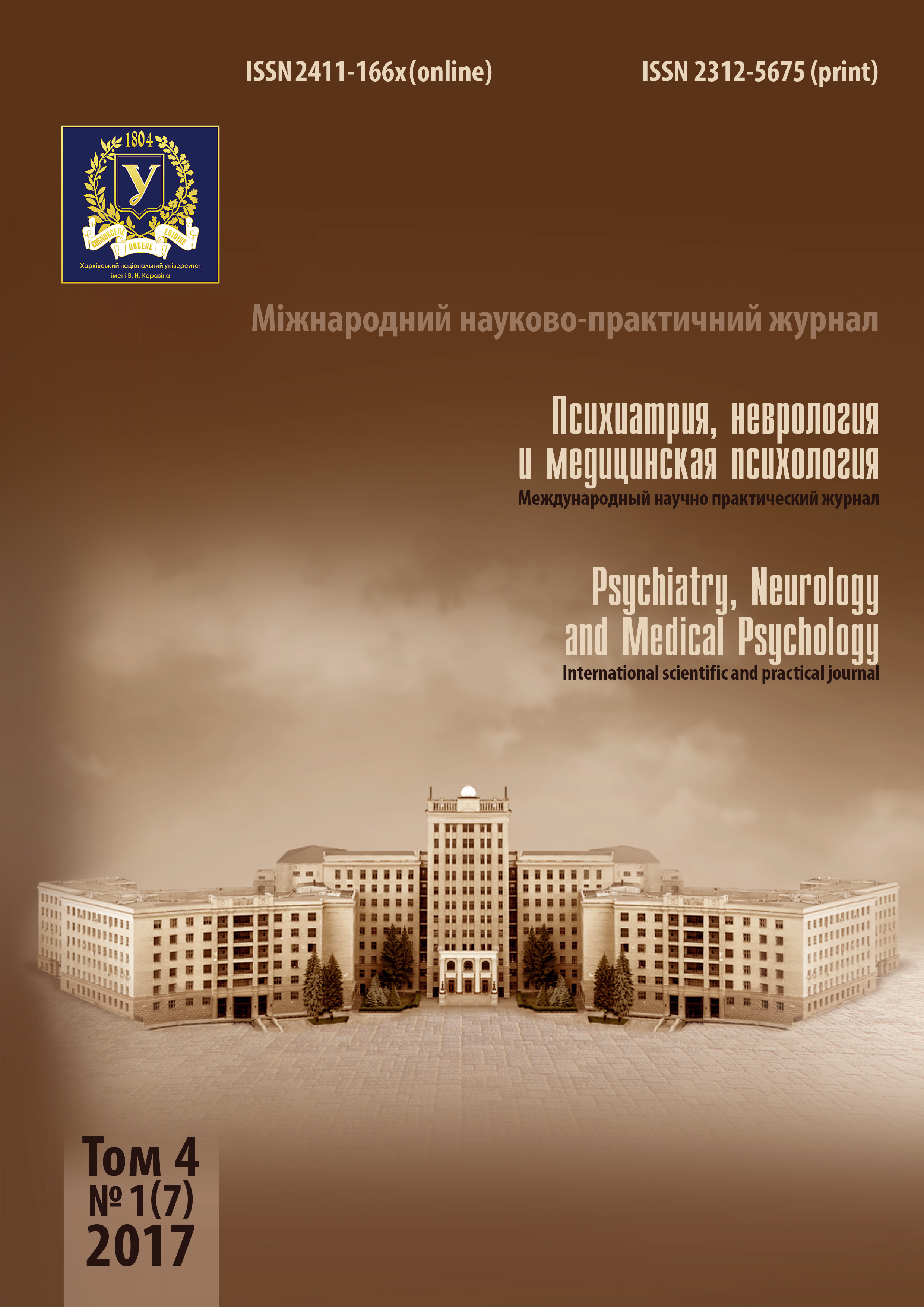The Improvement Of The Emotional State Assessment Of Children With Psychophysical Impairments
Abstract
The new approach to the emotional characteristics of children assessment was designed, basing on theoretical and empirical research of emotional peculiarities of children with psychophysical disorders on the example of children with the restrictions of the motor areas, children of detained mental development of constitutional origin and children with distorted mental development (according to the classification of mental dysontogenesis by K. S. Lebedinskaya and V. V. Lebedinskiy, 2006). It was developed a model for assessing the emotional characteristics of children with psychophysical disorders, which included a complex of studies on the emotional functions from the standpoint of functioning, life constraints and context factors, and could be the important component for assessing social adaptation within the framework of the International Classification of Functioning, Disability and Health for Children and Adolescents. The article presents the study on the emotions of children with psychophysical disorders of different ages (senior preschool and younger school age)
Downloads
References
Выготский Л. С. Психология развития человека / Л. С. Выготский. – М. : Эксмо, 2005. – 1136 с.
Лебединская К. С. Основные вопросы клиники и систематики задержки психического развития / К. С. Лебединская, В. В. Лебединский // Дефектология. – 2006. – No 3. – С. 15–27.
Saarni С. Emotional Development in Childhood / C. Saarni // Developmental Psychology. – 2011. – No 48. – Р. 679–688.
Романова З. А. Использование международной классификации функционирования, ограничений жизнедеятельности и здоровья при экспертизе детей и подростков / З. А. Романова, Л. Л. Науменко // Медико-социальная экспертиза и реабилитация. – 2014. – No 1. – С. 51–56.
Даценко І. Б. Принципи формування програми медико-психологічної реабілітації дітей із органічними ураженнями головного мозку / І. Б. Да-ценко, В. С. Спасібухова // Медична психологія. – Х., 2013. – No 4. – С. 7–11.
Мамайчук И. И. Помощь психолога детям с аутизмом / И. И. Мамайчук. – СПб. : Речь, 2007. – 288 с.
Кукуруза Г. В. Показники оцінки ефективності програм раннього втручання для дітей з порушеннями психомоторного розвитку / Г. В. Кукуруза // Медична психологія. – 2012. – No 2. – С. 47–49.
The International Classification of Functioning, Disability and Health for Children and Youth (ICF-CY) [Electronic Recourse] / Всемирная организация здравоохранения. – Женева : WHO Press, 2007. – 351 с. – Way of access : http://apps.who.int/iris/bitstream/10665/43737/1/9789241547321_eng.pdf.
Кисова В. В. Практикум по псходиагностике / В. В. Кисова, И. А. Конева. – СПб. : Речь, 2006. – 352 с.
Рогов Є. І. Настільна книга практичного психолога: навч. посібник у 2-х т. / Є. І. Рогов. – М. : ВЛАДОС, 1999. – 384 с.
Статистична обробка даних / В. П. Бабак, А. Я. Білецький, О. П. Приставка, П. О. Приставка. – К. : МІВВЦ, 2001. – 388 с.
Copyright (c) 2017 Юлія Олександрівна Гончар

This work is licensed under a Creative Commons Attribution 4.0 International License.

